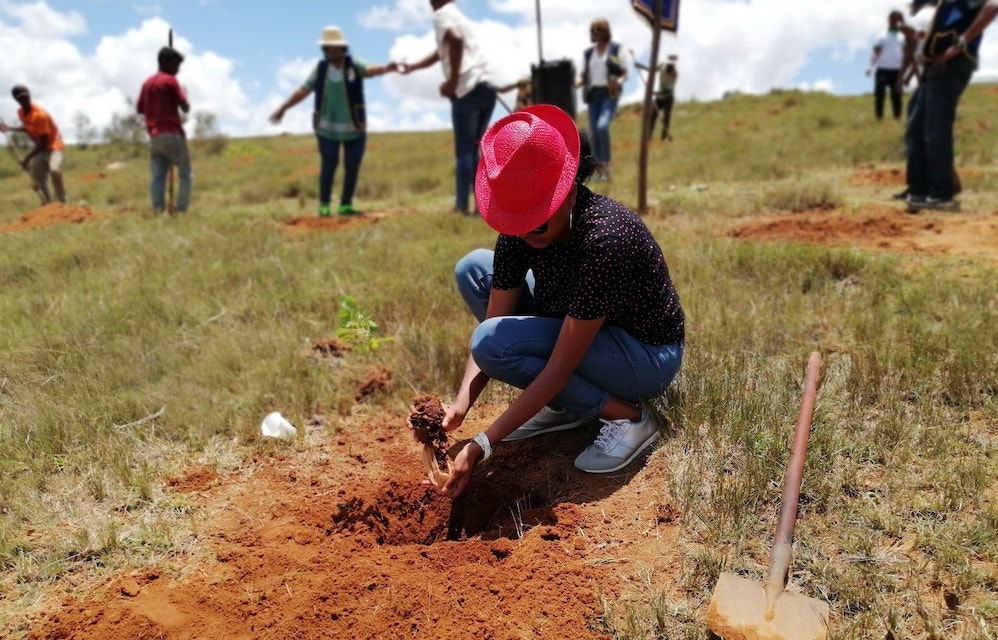Dennis Matangira sees Africa’s food security challenge and opportunity this way: if agricultural productivity is optimized for land under cultivation, it will be more than enough to feed the continent’s growing population. The problem is, investors aren’t dedicating enough capital to make that happen.
“People hardly put their money where their mouth is when it comes to agriculture,” he tells AFN. “They talk about food production in Africa, but when you dig deep, very little is deployed on the continent to support this.”
Zebu Investment Partners, the nine-year-old private equity firm where Matangira serves as managing director, is on a mission to change that by disproving the common risks associated with investing in African agriculture.
“When you look at Africa and try to raise money, people try to compare you against developed markets like Asia and Europe,” explains Matangira, “which is not a fair comparison because other markets have a developed value chain with angel investors, VC investors, leveraged finance and banks. All of this barely exists in Africa.”
The South Africa-based firm’s approach is to invest in opportunities that are optimizing agricultural value chains from “dirt to the dinner table,” focusing in particular on tech adoption and enablement of Africa’s small and mid-sized agribusinesses—the backbone of continent’s agriculture sector.
Zebu’s first fund, its African Agriculture Fund (AAF) SME Fund, invested $30 million in the continent’s agri-producers and processors. Its second fund, the Africa Food Security Fund, is aiming to invest $120 million—this time with more of a tech-lens.
Mapping the opportunity
Zebu’s focus on African agriculture opportunities was unique when the firm started back in 2012. To build its pipeline, it first had to map out Africa’s agrifood landscape—an arduous task on a continent comprised of 33 million smallholder farmers across 54 individual markets. Data was grossly lacking, says Matangira.
“Our fund’s first focus was information gathering, assimilation and formulating impact metrics and studies,” he explains. “We needed undiluted, unbiased information that covered the whole continent.”
Farmers and agri-businesses almost universally cited lack of access to financing as their biggest barrier to growth, Zebu found in its early research. The firm structured its funds to address this gap in multiple ways. The AAF SME Fund took a direct approach, making investments of $1 million to $4 million in seven agribusinesses across the continent. As a de-risking method, the firm paired investments with technical assistance grants that financed strategic, operational and technical support critical to each company’s growth.
Portfolio companies include Burkina Faso-based egg producer Moablaou, Madagascar-based fertilizer producer Guanomad, and Zimbabwe-based Interfresh, an independent agri-producer in known for its citrus operations.
Across its portfolio, Matangira explains, “we identify where potential productivity bottlenecks are and where they are struggling with profitability, then we find ways to assist.”
Interfresh exemplifies Zebu’s investment strategy. The company was publicly-listed and operating in the red when Zebu came in in 2012. Zebu performed what it describes as “an aggressive restructuring exercise” that included taking the company private. Its investment supported rehabilitation of Interfresh’s citrus orchards and upgrading irrigation methods and infrastructure. Zebu says the improvements helped Interfresh boost citrus yields by 400%.
Zebu also used technical assistance funding to help Interfresh use its excess manufacturing capacity to process crops from smallholder farmers, bolstering livelihoods of farmers in the region.
Tech-enabled impact
The Africa Food Security Fund levels-up Zebu’s strategy with bigger checks and a focus on tech enablement. In particular, the fund is zeroing in on opportunities to accelerate access to capital for African agribusinesses beyond what Zebu can invest directly.
For example, the fund has invested in Mauritius-based trade-finance company Africa Merchant Capital Trade Finance. It also invested last year in IQ Logistica (IQL), a cloud-based agtech platform that collects and aggregates data on agricultural outputs as they move across the agri-value chain. The six-year-old company is building an online marketplace to connect farmers with lenders, insurance companies and input providers by using alternative credit-scoring metrics.
“At a time when the Covid-19 pandemic has further illuminated the need for traceability and transparency within food value chains, IQL presents us with an opportunity of not only resolving these pertinent issues, but also addressing the challenges of primary agriculture in Africa such as facilitating access to finance, and enabling efficient markets based on information symmetry,” Matangira said of the investment.
He tells AFN that companies like IQL exemplify the potential for technology to drive efficiencies and open new markets across Africa’s agri value chains. “We are trying to promote this lending platform that is driven by the farmer’s capability and competence, rather than their balance sheet, because of how difficult it is for African smallholder farmers to access funding.”





